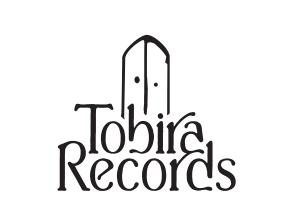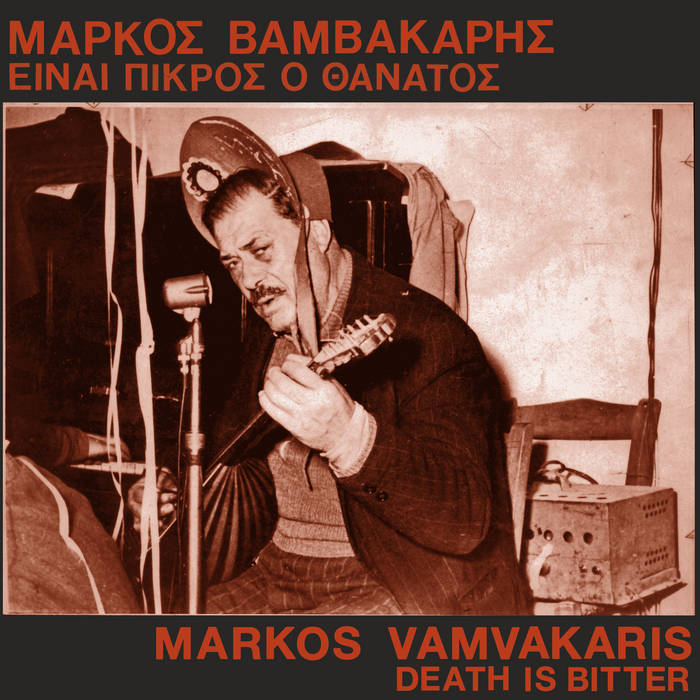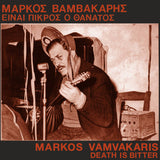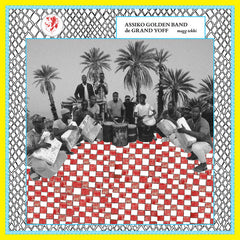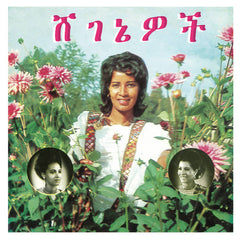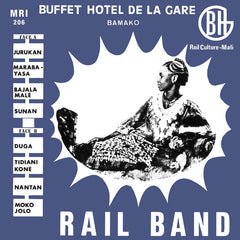Markos Vamvakaris // Death Is Bitter LP
- Availability:
This record is a compilation of songs by Markos Vamvakaris, a virtuoso of Greek working-class music Rebetika.Below is an explanation by the label.
As a continuation of Mississippi's exploration of the dark side of Greek music, the most legendary artist of the Greek Rebetika,
Markos Vamvakarispresents 12 rarely heard recordings filled with addiction pain and love.
Rebetika is the sound of Greece and Asia Minor clashing during the civil wars, mass population exchanges and anarchy of the late 19th and early 20th centuries.Rebetika, a poetic, wistful, bitter music, was born in the Mediterranean port of Hasden (Teques), and its poetry began in the 1930s.
Markos VamvakarisIt was whispered in a Greek prison before being spread to a wider audience.
Marcos (the first name any Greek music fan will know) sang and drunkenly sang love, pain and longing in the brothels, bars and hash dens of Piraeus port. In 1917 he arrived in the port of Piraeus as a young man and worked as a skinner in a tannery. When he got his hands on a bouzouki in 1924, he was fascinated by the life of the lowest social class in Greece, the Mange.They lived by their own laws, dressed, walked, and spoke in their own style, in complete opposition to others. Rebetika was their music.
Recorded in Athens between 1932 and 1936, Marcos was already a bouzouki virtuoso with these early twelve pieces.His strong, clean playing complements his hoarse voice and excellent sense of rhythm that comes from his years of experience as a Zebekiko dancer.The song spirals, his open-note drones and melodic lines evoking ecstatic voices and encouragement from his fellow musicians.The music of the Ottoman cafés, the voices of the Greeks taking refuge in Smyrna, the turmoil and suffering of port life, all come through in Marcos' songs.
This is a very rare remastered version that appeared in the recording scene in the early 1930s and was recorded in a short period from 1936 until the lyrics were censored by the government.There were no Rebetika recordings under the Axis occupation, and Marcos had several hits in the years after the war, but never reached this level again. A dazzling, mesmerizing and heaviest work by one of the greatest artists of the 20th century. "
Labels and other worksplease use this form. ///Click here to see more Mississippi Records releases available at Tobira.
-------------------------
Expertly remastered from rare 78s by Stereophonic Sound, pressed on heavy 160gm vinyl at Smashed Plastic, heavy sleeve and full size 8 page booklet with detailed historical notes, rare photos, and lyric translations.
***
Mississippi Records:
"HEAVY, ENTRANCING TRANSMISSIONS FROM THE GREEK UNDERWORLD
Continuing Mississippi's exploration of the darkest reaches of Greek music, we bring you 12 rarely heard recordings of addled suffering and love from the most legendary of all Greek rebetika artists, Markos Vamvakaris.
Rebetika is the sound of Greece and Asia Minor clashing amid civil war, mass population exchange, and the anarchy of the late 19th and early 20th centuries. by Markos Vamvakaris.
Markos (first name basis for all fans of Greek music) sang heady, drugged out songs of love, pain and yearning at brothels, bars and hash dens in the port of Piraeus. He arrived as a youth in 1917, working as a skinner in a tannery. By the time he picked up the bouzouki around 1924, he was fully taken by the life of the manges, the lowest rungs of the Greek social ladder. total opposition to the rest of the population, dressing, walking and speaking in their own style.
On these twelve early tracks, recorded in Athens between 1932 and 1936, Markos was already a master of the bouzouki. His forceful, clean playing compliments his hoarse voice and his stunning rhythmic sensibility, the result of his years as a champion zebekiko dancer. build and spiral outward, his open-note drones and melodic lines drawing calls of ecstasy and encouragement from his fellow musicians. Translations of songs like “Hash-Smoking Mortissa” and “In The Dark Last Night” provide a glimpse into the life and language of the manges - Ottoman cafe music, the calls of displaced Greeks of Smyrna, the chaos and suffering of port life, it all comes through Markos' songs.
These recordings, incredibly rare and expertly remastered, mark the height of rebetika, the brief period between the music's emergence on the recording scene in the early 1930s and government censorship of all lyrics starting in 1936. During the Axis occupation there was no rebetika recording, and though Markos had some hits in the years after the war, he never again attained this level. These are the dizzying, entrancing, and heaviest works of one of the great artists of the 20th century."
Artist : Markos Vamvakaris
Label: Mississippi Records
This record is a compilation of songs by Markos Vamvakaris, a virtuoso of Greek working-class music Rebetika.Below is an explanation by the label.
As a continuation of Mississippi's exploration of the dark side of Greek music, the most legendary artist of the Greek Rebetika,
Markos Vamvakarispresents 12 rarely heard recordings filled with addiction pain and love.
Rebetika is the sound of Greece and Asia Minor clashing during the civil wars, mass population exchanges and anarchy of the late 19th and early 20th centuries.Rebetika, a poetic, wistful, bitter music, was born in the Mediterranean port of Hasden (Teques), and its poetry began in the 1930s.
Markos VamvakarisIt was whispered in a Greek prison before being spread to a wider audience.
Marcos (the first name any Greek music fan will know) sang and drunkenly sang love, pain and longing in the brothels, bars and hash dens of Piraeus port. In 1917 he arrived in the port of Piraeus as a young man and worked as a skinner in a tannery. When he got his hands on a bouzouki in 1924, he was fascinated by the life of the lowest social class in Greece, the Mange.They lived by their own laws, dressed, walked, and spoke in their own style, in complete opposition to others. Rebetika was their music.
Recorded in Athens between 1932 and 1936, Marcos was already a bouzouki virtuoso with these early twelve pieces.His strong, clean playing complements his hoarse voice and excellent sense of rhythm that comes from his years of experience as a Zebekiko dancer.The song spirals, his open-note drones and melodic lines evoking ecstatic voices and encouragement from his fellow musicians.The music of the Ottoman cafés, the voices of the Greeks taking refuge in Smyrna, the turmoil and suffering of port life, all come through in Marcos' songs.
This is a very rare remastered version that appeared in the recording scene in the early 1930s and was recorded in a short period from 1936 until the lyrics were censored by the government.There were no Rebetika recordings under the Axis occupation, and Marcos had several hits in the years after the war, but never reached this level again. A dazzling, mesmerizing and heaviest work by one of the greatest artists of the 20th century. "
Labels and other worksplease use this form. ///Click here to see more Mississippi Records releases available at Tobira.
-------------------------
Expertly remastered from rare 78s by Stereophonic Sound, pressed on heavy 160gm vinyl at Smashed Plastic, heavy sleeve and full size 8 page booklet with detailed historical notes, rare photos, and lyric translations.
***
Mississippi Records:
"HEAVY, ENTRANCING TRANSMISSIONS FROM THE GREEK UNDERWORLD
Continuing Mississippi's exploration of the darkest reaches of Greek music, we bring you 12 rarely heard recordings of addled suffering and love from the most legendary of all Greek rebetika artists, Markos Vamvakaris.
Rebetika is the sound of Greece and Asia Minor clashing amid civil war, mass population exchange, and the anarchy of the late 19th and early 20th centuries. by Markos Vamvakaris.
Markos (first name basis for all fans of Greek music) sang heady, drugged out songs of love, pain and yearning at brothels, bars and hash dens in the port of Piraeus. He arrived as a youth in 1917, working as a skinner in a tannery. By the time he picked up the bouzouki around 1924, he was fully taken by the life of the manges, the lowest rungs of the Greek social ladder. total opposition to the rest of the population, dressing, walking and speaking in their own style.
On these twelve early tracks, recorded in Athens between 1932 and 1936, Markos was already a master of the bouzouki. His forceful, clean playing compliments his hoarse voice and his stunning rhythmic sensibility, the result of his years as a champion zebekiko dancer. build and spiral outward, his open-note drones and melodic lines drawing calls of ecstasy and encouragement from his fellow musicians. Translations of songs like “Hash-Smoking Mortissa” and “In The Dark Last Night” provide a glimpse into the life and language of the manges - Ottoman cafe music, the calls of displaced Greeks of Smyrna, the chaos and suffering of port life, it all comes through Markos' songs.
These recordings, incredibly rare and expertly remastered, mark the height of rebetika, the brief period between the music's emergence on the recording scene in the early 1930s and government censorship of all lyrics starting in 1936. During the Axis occupation there was no rebetika recording, and though Markos had some hits in the years after the war, he never again attained this level. These are the dizzying, entrancing, and heaviest works of one of the great artists of the 20th century."
Artist : Markos Vamvakaris
Label: Mississippi Records
